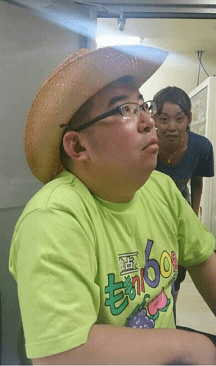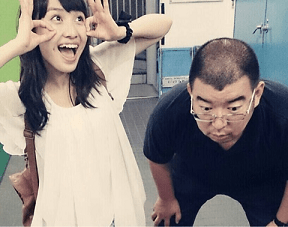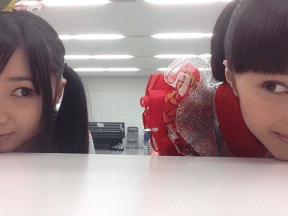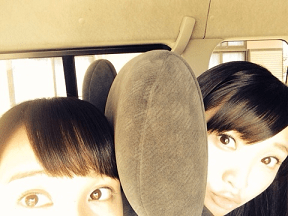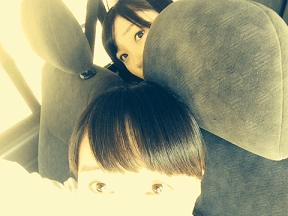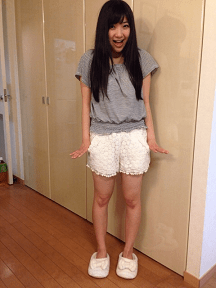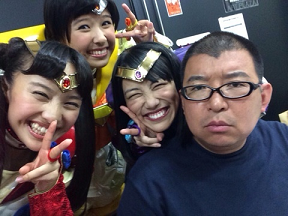ニッポン笑顔百景 (Nippon egao hyakkei) – 100 famous views of Japan’s smiles
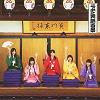
from Nippon egao hyakkei single.
——
Yooooooooooooooo!!!
Immortal, immortal, wearing out five eons
Like sand on the beach, fish in the sea, the coming of water
The coming of clouds, the coming of wind
With a place to eat, sleep, and live
Like the saffrons in the saffron grove
Paipo, Paipo, Paipo’s Shuuringan
Shuuringan’s Guurindai
Guurindai’s Ponpokopii
And Ponpokonaa’s Choukyuumei
Chousuke!
Please give us some time
Listen carefully
I’m ready!
Something that happens when you laugh (Ha!)
Something worn by those festival dudes (Soiya)
What’s that? What’s that?
Both are happy(i), right?
Next speaker, please
Laugh, laugh, come let’s laugh
This is the era to laugh
Laugh (Soiya soiya) If you cry, you lose
Let’s laugh in desperation
Ups and downs, sweet and sour
All overcome. Bravo, Japanese
Laugh at all times
Let’s laugh at everything
Gwahaha (Gwahaha) Nyohoho (Nyohoho)
Just laugh, like you can’t read the situation
Smile (Smile!) Smile! (Smile!)
Fortune comes to the door of those who smile!
Everyone, thank you for joining us today
Here’s a seat!!
A daughter mouse got married, but soon returned to her old home,
The mother mouse got really angry,
“It’s such a good home that you married into,
nobody would hate it and run away”
“No, nobody would hate that place, but
Mother-in-law is too nice, I hate it.”
“Isn’t it good that she’s nice?”
“But her voice is so coaxing.”
Overcome by a busy lifestyle
And fading away, you bloody fool!
Laugh, laugh, even if you can’t
There’s nothing else to do, so let’s laugh
Laugh (Soiya soiya) Lift the corners of your mouth
Let’s laugh in earnest
The Onin War was such a huge affair
But we cleared it, us modern Japanese
Laugh for eternity
Laugh with a ‘Guhaha’
Don’t look down on a little girl’s nonsense
Don’t frown and growl, it makes you look strange
I want to see your smile
Laugh, laugh, come let’s laugh
This is the era to laugh
Laugh (Soiya soiya) If you cry, you lose
Let’s laugh in desperation
Ups and downs, sweet and sour
All overcome. Bravo, Japanese
Laugh at all times
Let’s laugh at everything
Let’s laugh in earnest
Gwahaha (Gwahaha) Nyohoho (Nyohoho)
Just laugh, like you can’t read the situation
Smile (Smile!) Smile! (Smile!)
Fortune comes to the door of those who smile!
——
Notes:
1. The song is based on a rakugo setting. Rakugo is a type of comedy where a storyteller sits on stage and tells a story. The stories are usually filled with puns and inside jokes.
2. The entire first verse “Jugemu……Chousuke” is a Japanese tongue twister. In the past, the Japanese would give a child a really long name, which includes all their hopes and wishes for the child, and this tongue twister is a parody of that tradition. Here is a breakdown of the “name”:
“Immortal” – wishing a long life
“wearing out five eons” – stands for an impossibly long time. Derived from a popular rakugo story that talks about a celestial maiden who bathes at a small creek. Every time she bathes, she will slide past the rocks inside the creek, slowly wearing them down until one day they disappear. This is said to take about 4 billion years, or one eon. So to wish a person a lifespan of five eons is a very long time
“Like sand on the beach, fish in the sea” – again, wishing for a long life with as many years as there are grains of sand on a beach or number of fish in the sea
“the coming of water, the coming of clouds, the coming of wind” – these actions never cease, once again indicating an unceasing life
“With a place to eat, sleep, and live” – wishing for a prosperous life
“Like the saffrons in the saffron grove” – the saffron or “yabukouji” is a tree known to have a strong lifeforce. Another pun in this line comes from the word “yaburakoujin”, which brings to mind the word “burabura”, which means hanging fruit
“Paipo, Shuuringan, Guurindai, Ponpokopii, Ponpokonaa” – all comes from a story of the Paipo Kingdom in China. Shuuringan is the king in the story, Guurindai his beloved consort, and Ponpokopii and Ponpokonaa their two daughters. In this song, there is an additional pun, since “Shuuringan” sounds like “shooting gun”, there are gun sounds inserted in the song right after this name is mentioned.
“Choukyuumei” – at the end of all the wishes comes the actual name of the person. This is the family name. A pun is made as the kanji literally means “a really long life”
“Chousuke” – the first name. Another pun is being made here, as the characters “chou” means “long” while “suke” comes from “tasukete” or “save me”. So together, they seem to imply the needless length of this entire verse of a “name”.
3. A pun is made right before the first chorus. Being “happy” is something that happens when one laughs, while a “happi coat” is usually worn by males during festivals.
4. In the second verse about the mice, the pun comes in the last line when the daughter complains about the mother-in-law’s “coaxing” voice. In Japanese, the characters for “coaxing” is pronounced “nekonade”, and literally means “purring cat”.
Continue reading →

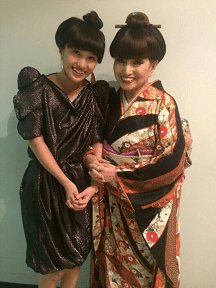
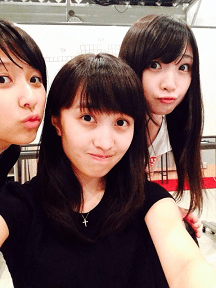
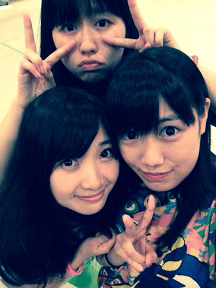
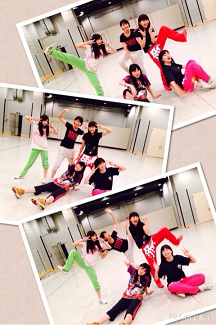
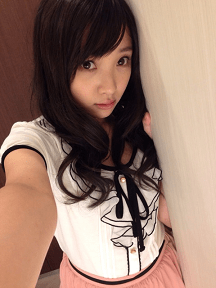
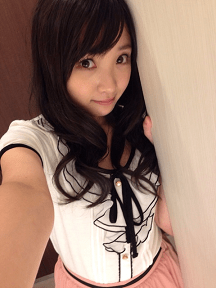
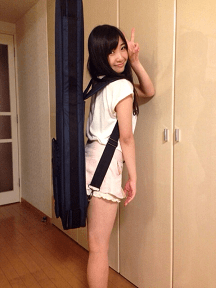
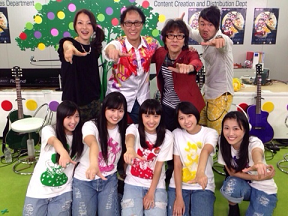
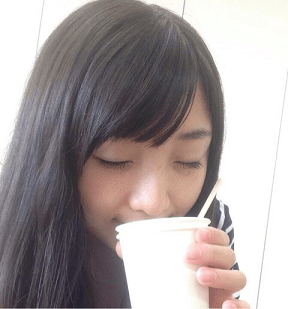
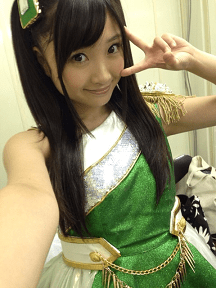
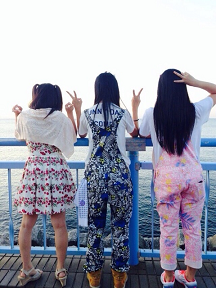

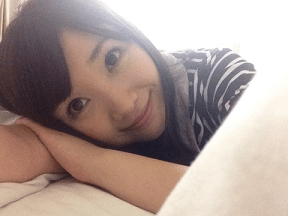
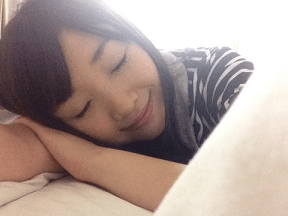

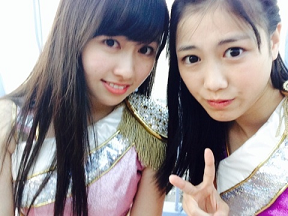
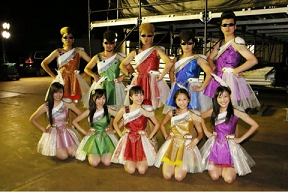

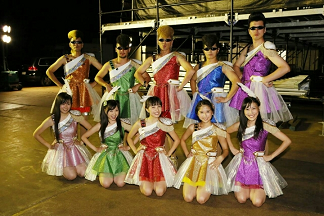
 Sasaki Ayaka
Sasaki Ayaka 




